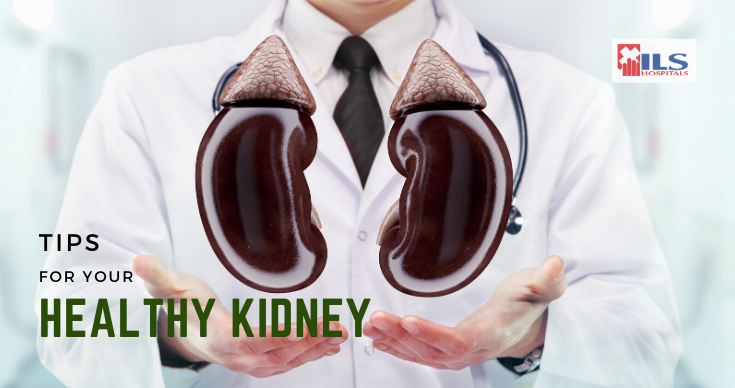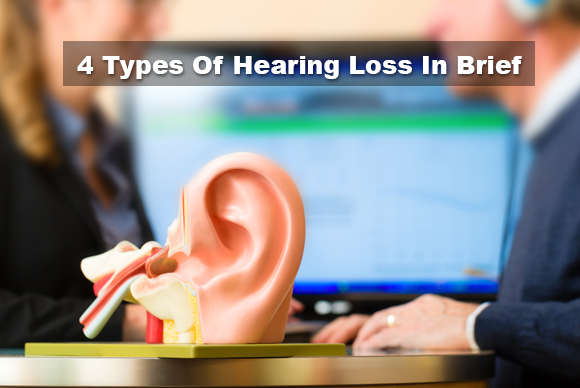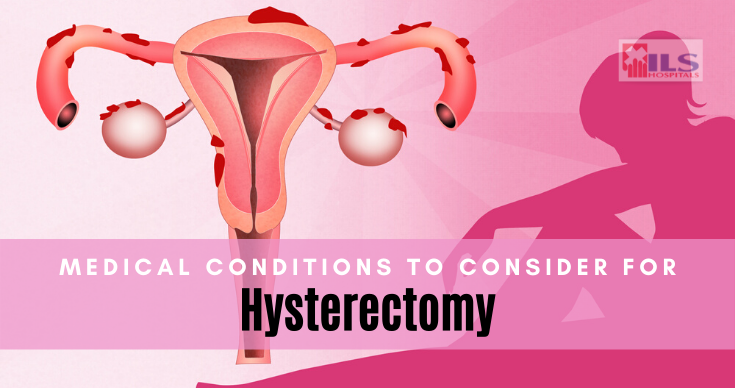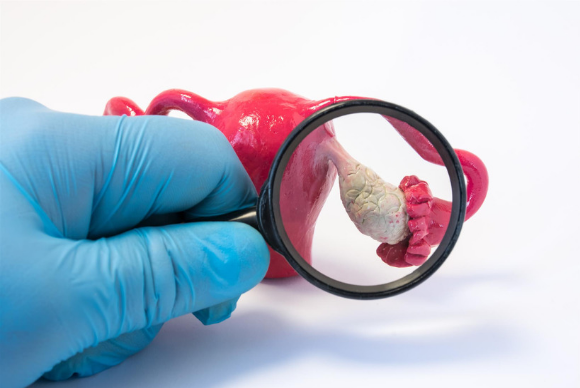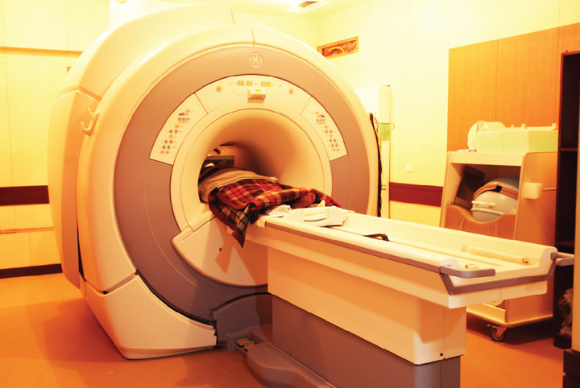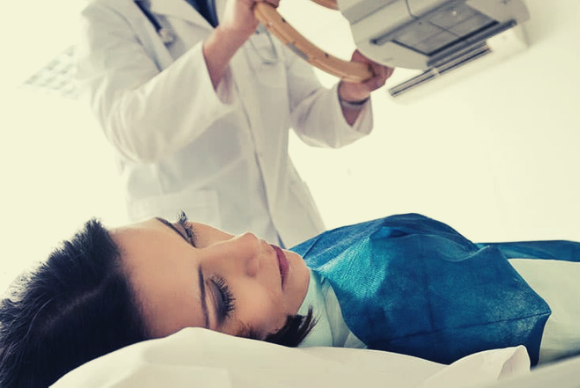Super Tips To Keep Your Kidney Healthy
Kidneys are a pair of organs that filter the blood and removes any waste and toxins from the body. However, as even ‘one healthy kidney’ can function pretty well, detection of kidney disease becomes quite tricky. Here we bring some super tips, as per nephrologists, to keep your kidney healthy and disease-free.
1. Drink Plenty Of Water
Staying hydrated is always beneficial for everyone. This is particularity true to keep the kidneys healthy and active. So, try to include at least 1.5 to 2 liters of water each day. It helps the urinary system to remove toxins from the body as well reduce the chances of developing kidney stones and other common complications of kidneys.
2. Keep Diabetes In Leash
Diabetes and kidney complications are associated with one another. Thus, it is crucial to keep your diabetes in leash in order to minimize the risks of kidney illnesses in the future.
3. Keep Body Weight In Check
Being overweight brings many complications along with it. Kidney complication is simply one of them. So, staying in shape is a wise way to keep kidney complications at bay. Maintain a healthy body weight by doing physical exercise regularly.
4. Eat Healthy and Wisely
Eating a healthy diet is highly helpful for a healthy kidney. Reduce your salt intake and highly processed food. Instead, include fresh fruits and vegetables. Moreover, in case you are dealing with any kind of discomfort regarding kidney stone or gallstones, it is best to avoid the seeds of the veggies and fruits as much as possible.
5. Monitor Your Blood Pressure Profile
The normal blood pressure ranges from 120 to 80 mmHg. A persistently high blood pressure brings many challenges to kidney’s overall health and functionality. Keeping a tab on your blood pressure level is crucial from time to time.
6. Quit Smoking
Smoking does no good for overall health. Smoking hampers the blood flow to the kidney. Needless to say, when the kidney does not get an adequate blood supply, it affects their ability to function properly. Stop smoking reduces the chances of kidney cancer by about 50 percent.
You are also requested to avail the renal checkup to ensure complete care of your kidneys. Renal checkup packages are available at ILS Hospitals. You are particularity recommended towards the same, in case you have diabetes, obesity, hypertension, or have an immediate family member who also has any kidney complication.
4 Types Of Hearing Loss In Brief
‘We have 2 ears and 1 mouth, that is why we should hear twice as much as we speak’.
It is often said by elders to the youngsters demonstrating the value of listening before acting regarding anything. Indeed it is crucial to have a sound hearing to understand everything around us. It is often mistakenly assumed that hearing loss occurs only for much older people or those who suffer any kind of injury directly over their ears or those who love to listen to loud music over earphone for long hours. However, there are several types of hearing loss. Let’s study them in brief.
1. Conductive Hearing Loss
This type of hearing loss arises due to some damage or blockage in the outer or middle ear. In this case, the sound signal does not pass from the ear canal to the eardrum or from eardrum to the inner ear. It can either be due to clogged earwax, built up fluid of ear glue, persistent infection, abnormal ear bone growth, a perforated eardrum or severe allergies.
It is most common among young children and can be easily treated with over the counter drugs, ear drops or simple ear cleaning procedures.
2. Sensorineural Hearing Loss
This type of hearing loss arises due to the malfunction or damage in the cells of cochlear. It requires immediate and extensive treatment as an unresolved condition can lead to permanent hearing loss. Often it requires assisting implants to control the situation.
3. Mixed Hearing Loss
This type of hearing loss is triggered by the presence of the previous two causes together. Out of these, often the sensorineural hearing loss is permanent and the conductive hearing loss is either temporary or permanent.
4. Auditory Neuropathy Hearing Loss
This type of hearing loss arises from a damaged or malfunctioning auditory nerve transmission between the cochlear and the brain. It triggers due to the cut off the oxygen supply, or some other neurological issue. The degree of hearing loss can fluctuate anywhere between normal to a profound and distinguishing speech from background noise is particularly challenging for such people.
Usually, the mild or temporary hearing loss can be effectively corrected with mild medication. However, several hearing implants and bone anchored hearing aids are also used on patients with high severity or total hearing loss. At ILS Hospitals, our ENT specialists offer advanced forms of audial assisted technique including cochlear implants and other forms of extensive treatment.
Hormonal Issues Faced By Women After Menopause
In this forever changing the world, ‘change’ is the only constant. It is particularly effective when aging is considered. Even though many illnesses keep surfacing through any age, some conditions strike due to aging. Menopause is one such condition that can cause many problems for women going through this stage. Menopause is the transition that marks the end of the reproductive age of a woman.
Today, we will talk about the hormonal issues faced by women after menopause and what needs to be done to address them, as per gynecologists.
There are two particular female hormones, namely estrogen and progesterone in the body. The overall balance and level of these hormones regulated and influence the menstrual cycle and fertility cycle. Their level decreases significantly during the menopause and as a result, it affects the overall health severely. For many women, these effects stay only for a short period of time and for many it stays effective for many years to come.
Symptoms Of Post-Menopausal Condition
Some of the most experienced symptoms of menopause are as follows-
- Irregular Periods Or Spotting
- Mood Swings Without Any Particular Reason
- Hot Flash Or Night Sweats
- Insomnia
- Tenderness And Lethargy
- Brain Fog And Feeling Out Of Focus
- Lack Of Interest In Intimacy
- Experiencing Pain Or Dryness In Intimate Regions
Many women become more susceptible to other conditions such as weight gain, osteoporosis, cardiac ailments, etc. However, the most severe effects often constrain in the mind and require long term medical care.
What Is To Be Done To Address It?
As per many studies, the emotional turmoil is more prevalent among women in western countries, as menopause is considered as a sign of aging. Thankfully, in southern Asian countries, like in India, not many women severely suffer (emotionally) due to menopause, as socially and physiologically, aging often is considered as a mark of wisdom. Though many women find this transition quite easy to deal with, gynecologists acknowledge this as a medical condition and advise to seek treatment in case one is struggling with any discomfort.
Our expert Gynecologist offers effective treatment to the women dealing with the postmenopausal syndrome. Often medication is adequate to deal with the physical symptoms, however, for the mental and behavioral ones, they can also recommend therapy. Moreover, as mentioned earlier that menopause brings many secondary conditions, as a likely scenario, so it is crucial for post-menopausal women to keep their overall health in check as well.
Why Women Should Undergo Regular Health Checkup
“It is hard to be a woman. You must think like a man, act like a lady, look like a young girl and work like a horse.”
Being a woman is indeed quite challenging. Amidst the daily hard life, most women tend to ignore their own health. However, this is a poorly thought and executed habit that often ends up badly. Our expert gynecologists and obstetricians always remind people to prioritize their own health first, before prioritizing their family or their career.
Some Illnesses Affects Women Exclusively
Due to several anatomical and biological factors, some illness affects only women, such as gynecological cancers, postpartum depression and some complications due to hormonal imbalance etc. Moreover, many illnesses are more prevalent among women, such as heart diseases, breast cancer, osteoporosis etc. In either way, it calls out for women to take extra care of themselves.
Enduring Symptoms Does ‘No Good’
Many women, particularly living in rural and semi-urban places often encounter some medical discomfort (often related to gynecological health), but sadly they keep enduring it, until the time, it becomes unbearable. The reasons are mostly due to some taboo or financial constraint. Our expert gynecologists and obstetrician encounter such cases regularly and they strictly advise against it. Taboo should have no place to interfere with one’s health and life also treating most conditions in its early stages are often quite affordable (as compared to later stages, which requires extensive treatment and surgery).
Always Remember – Timely Treatment Makes Huge Difference
No matter how complex any condition is, it is often possible to resolve it better, if they are treated on time. During the early stages, most medical conditions can be addressed effectively with mild treatment approaches. Things start to complicate when the condition left undiagnosed (and thereby untreated) for a prolonged period of time. Needless to say, the best way to ensure timely treatment is periodic screening.
At ILS Hospitals we thrive to offer every woman, a complete health care solution. Keeping this in mind, we have designed the Well Women Check Up package that offers the following screenings:
- Complete Haemogram with ESR
- Fasting Blood Sugar
- PAP smear
- Thyroid Profile
- Urine R/E
- USG Breast Screening for female below 40 yrs
- Chest X-Ray PA View
- USG Whole Abdomen screening
- ECG
We understand that it is often difficult for many individuals to draw meaningful conclusions from the reports. Thus, we offer a Gynecologist Consultation with this package. Ensure a healthy life ahead by availing this health package.
Visit us today to book your package.
All About Ovarian Cysts You Need To Know
There are several gynecological complications that affect the health of women. It is crucial to get in touch with an expert gynecologist in case any symptom of discomfort persists. Let’s have a brief introduction to one such common gynecological condition, the ovarian cysts.
Ovarian Cysts – What Are They
Ovaries are a pair of organs in the female reproductive system. They are located on each side of the uterus, in the lower abdomen. Ovarian cysts are solid or fluid-filled cavity sacs that can develop into either one or both ovaries.
Symptoms Of Ovarian Cysts
The most common symptoms of cysts are as follows-
- Pelvic Pain During Menstrual Cycle
- Abdominal Swelling
- Pain While Passing Urine Or Bowel
- Tenderness In Breasts
- Nausea And Vomiting
- Pain In Lower Back Or Legs
- Dizziness
- Fever
- Breathlessness
However, in many cases, the cysts project no bothersome symptoms and thus remain unnoticed.
Complication Of Ovarian Cysts
Majority of the cysts get resolved on its own and often requires no treatment. However, there may be some compilations associated in some cases. Some of the same are as follows-
- Ovarian torsion is a condition when a large cyst makes the ovary dislocates from its original place, causing a blood supply cut off.
- Ovarian rupture is pretty much self-explanatory, in which the cyst burst and spills the infectious content
- Having cancerous cystic ovarian mass in the cysts indicates malignancy within the cyst.
These complications require immediate medical attention as ignorance can lead to severe consequences later on.
Thereby it is crucial to know the symptoms of the same very carefully, some of which are as follows
- Unexplained Weight Loss
- Loss Of Appetite
- Random Changes On Menstrual Cycle
- Persistent Pelvic Pain
- Abdominal Discomfort Or Fullness
In case multiple symptoms are simultaneously arising and causing much pain and discomfort, it might be a silent indication of an underlying cyst complication. It requires seeking immediate medical attention.
Diagnosis Of Ovarian Cysts
Ovarian cysts can be diagnosed through the following screenings-
- Routine or recommended pelvic examination
- Ultrasonography
- MRI
- CT scan
It is important to avail these diagnostic screening timely to ensure a timely treatment in turn. Even though the cysts do not pose any severe threats, it is always wise to have an accurate diagnostic to re-ensure the same.
Treatment Of Ovarian Cysts
The treatment approach depends largely on the size and severity of the cysts. Some cysts resolve on its own, while some other requires medical intervention. It includes prescribing oral medication, birth control pills and surgical means like laparotomy.
Avail quality treatment and diagnosis of ovarian cysts at ILS Hospitals.
Check Out The Medical Condition When Hysterectomy Is Required
The human body, its organs, and the organ system is a complex creation of nature. Each organ has its own set of function and significance. However, due to many complications, it might become important to surgically remove either a part or the entire organ. The uterus is the internal organ that plays a crucial role in pregnancy and menstrual cycle of women. Surgical removal of the uterus is called hysterectomy. Expert gynecologist and obstetrician recommend a hysterectomy for various reasons. Let’s understand what conditions calls out for the need of a hysterectomy.
1. Heavy Menstrual Bleeding
Some women experience severe bleeding during the monthly cycles up to an extent that it starts affecting their daily life. In such cases, hysterectomy offers a permanent solution as post surgery, the menstrual cycle ceases to continue. However, often it is availed only by the women who no longer wish to have children.
2. Uterine Or Cervix Cancer
Any cancer is a deadly medical condition that requires effective treatment on time. For any cancer, surgical removal of the site of malignancy is the best treatment and the same holds true for the gynecological cancers as well.
3. Endometriosis
The uterus lining tissues sometime might grow outside the uterus and spread into nearby organs such as a fallopian tube or other pelvic or abdominal organs. A total hysterectomy is considered when other medical approaches fail to get any effective results.
4. Fibroids
Uterine tumors, even if benign in nature, cause many complications. Pain, bleeding, and anemia is some of them. They can be treated by a non-surgical approach in case they are quite small in size. However, it might require a hysterectomy to address larger fibroids.
5. Pelvic Inflammatory Disease
It is a bacterial infection affecting the female reproductive system which can be cured easily with over-the-counter drugs if detected at its earliest stages. However, failing to do so, can have drastic consequences as it spreads to the uterus and fallopian tubes and causes a long term, severe pain. Hysterectomy remains a feasible and permanent solution for the same.
A partial hysterectomy is a procedure in which only the uterus is removed while the cervix is left intact. In a total hysterectomy, the cervix is also removed (many a time, either or both ovaries and fallopian tubes are also removed) surgically. At ILS Hospitals, we offer laparoscopic hysterectomy for patients dealing with such severe medical conditions.
5 Facts About PCOS Every Women Should Be Aware Of
Polycystic Ovary Syndrome (PCOS) is a condition in which a woman’s body starts to secrete male-sex hormones in a much higher level than ideally should be. As a result, it starts interrupting menstrual cycles and makes the chances of natural conception quite challenging. Here we present some useful facts as per the gynecologists that every woman should be aware of. So let’s begin.
Fact 1 – PCOS Will Leave You More Tired Than You Can Imagine
PCOS not only stresses gynecological health but overall health as well. It makes them feel drenched of energy and experience persistent fatigue. For many women, this severe lethargy lasts particularly during the menstruation cycle, while for others it is pretty much the same, in general.
Fact 2 – PCOS Is Quite Common
In case someone is dealing with PCOS and have to take the day off, while their peers are enjoying everyday life, it is impossible ‘not be feel burdened’ by this unwanted condition. But it the reality, PCOS is a very common condition among women of childbearing age, as per gynecologists. In fact, many women live with PCOS that often stays undiagnosed as they lead a normal life.
Fact 3 – PCOS Cannot Be Cured. But It Can Be Treated
As per gynecologists, medical science is yet to find a complete cure for PCOS. However, good hospitals offer quality treatment for it. This includes managing symptoms by following a balanced diet, taking prescribed supplements and leading a healthy life overall.
Fact 4 – PCOS Needs Prolonged Treatment
As already mentioned, PCOS cannot be cured. Thus, it is crucial to avail its treatment for a prolonged period of time. As PCOS is considered as a condition affecting the women of childbearing age, so they let their guard down when they pass this stage. However, it is highly recommended to keep treating the symptoms even when they hit menopause or are currently pregnant.
Fact 5 – Natural Conception Is Possible Even With PCOS
Though it is common for women with PCOS to struggle to have a baby without any medical aid but it is NOT impossible. Many women successfully conceive even with PCOS. Besides, with advanced artificial reproductive techniques, the chances of having a successful conception are quite high.
At ILS Hospitals, our expert gynecologists offer the best treatment for women dealing with PCOS and other gynecological conditions effectively.
Importance Of High-End Diagnostics Under One Roof
Radiology is a special branch of medical science that uses imaging and other advanced techniques to detect the presence of any medical abnormality or illness. It can also be used to study the structure and functionality of any organ. Simultaneously, many a time, it can be availed to evaluate the effectiveness of a certain treatment. Needless to say, there are several types of radiology procedures and each of them has its own importance.
Some of the most common diagnostic techniques are as follows-
- Blood profile screenings
- X-ray
- Computed Tomography (CT scan)
- Fluoroscopy
- MRI
- Mammography
- Ultrasonography
- ECG
- Echocardiogram
- Exercise stress test
- Cath Lab
But it is even more beneficial for overall treatment when all the diagnostic procedures are available within a vicinity itself. Let’s explain it in details.
If you are dealing with a case of cavities in your teeth, a regular oral x-ray is adequate but often it is not the case for many other patients were having all diagnostic services under one roof is particularly helpful. For instance, a patient complaining of the persistent palpitation might simply be suspected of having high cholesterol at first. Thereby the only screening they might suggest is a blood cholesterol profile. However, persistent palpitation can be a result of several cardiac complications as well. Especially for an aging patient, a thorough investigation is required to determine the exact cause. These Cardiac health evaluations might comprise Electrocardiography, Echocardiogram, Exercise Stress Test and more. Needless to say, having them all in one place helps a lot.
It might also happen that a patient referred for an X-ray might reveal of having some metal implants inside their body right before undergoing the screening. Having a multispecialty radiology facility will enable the healthcare personnel to arrange for some other alternative radiology like an MRI or USG scan for the patient, without losing any precious moments
Moreover, going for a particular path lab is ideal for elective diagnosis. For instance, the routine diabetes checkup can be availed at any standard pathology center or even the sample collection at home works fine as well. However, in case of any accidental injury or medical emergency, it is difficult to predict in advance, exactly which tests are going to be recommended. Thus, having as many of them can be a life-saving factor.
ILS Hospitals offers high-end diagnostic services, all under the same roof. We offer diagnostic services for a wide range of medical specialties. We are equipped with the best-in-class diagnostic equipment and expert radiologists. We furthermore ensure that all our radiology procedures are carried as per standard guidelines and under the expert supervision of radiologists.
Guidelines To Follow Before Undergoing X-Ray
Medical science has evolved drastically over the past few decades. Advanced radiology is one such crucial aspect that plays an important role in the overall treatment process. The diagnostic technique we all had undergone at least one in our lives is the x-ray. X-ray is an imaging technique that uses ionizing radiation to pass through the body and capture images accordingly. It is mostly used to determine the extent of bone and joint damage on a recommendation from orthopedic clinics, but it also can be used to evaluate certain kinds of a pathogen-based health condition or to study any structural deformities of some organs. Let’s go through the guidelines you need to follow before undergoing an X-ray imaging.
Read more – All About X-Ray Tests And Its Scope
X-ray can be done for many organs and thus the actual guidelines may vary from case to case. However, in general, the following guidelines are to be followed for any x-ray imaging.
1. X-ray diagnosis is carried out either in the doctor’s chamber, diagnostic center or the diagnostic section of multispecialty hospitals. So, the patient must reach the spot, preferably a little in advance.
2. The patient needs to remove all the pieces of jewellery, eyeglasses and accessories like watches, cell phones etc. outside the radiology chamber.
3. The patient needs to inform the radiologist or the doctor beforehand, in case they have any surgical metal implants currently on them. These include any orthopedic metal joints, pacemakers, surgical mesh and wiring etc. Females patients also need to inform in case they are currently pregnant or even suspecting the possibility. They also must inform if they have surgical contraceptive implanted currently.
4. The patient needs to undress and wear a gown on the region that is supposed to have an x-ray. The patient are provided with a gown by the centre.
5. The patient might be given some contrast medium in certain kinds of x-ray tests. For that, they need to receive an injection or have to swallow the medium orally.
6. The patient is then guided towards the machine and helped to be positioned in the correct posture.
7. When instructed, the patient needs to stay still and might need to hold their breath momentarily, in some particular cases. This step ensures the images do not get blurry and feature the accurate details effectively.
X-ray is a painless procedure that takes only a few minutes for orthopaedic and other diagnostic purposes but might need more than an hour for x-ray involving contrast mediums. ILS Hospitals offers accurate and advance X-ray scan for every medical need.
3 Most Congenital Heart Disorders as per Experts Cardiologists
Heart ailments are becoming extremely prevalent these days. While some of these are acquired due to a sedentary lifestyle or some underlying illnesses, some heart defects are present from the time of birth itself. These are referred to as congenital heart diseases. A heart specialist can detect and address them timely. Let us discuss some common congenital heart diseases, in brief, but let’s first understand the structure of heart a little.
The heart is a pumping device of the body. It contains 4 valves, the upper chambers are called left and right auricles and lower chambers are called left and right ventricles. The blood circulated between the ‘body and the heart’ and between the ‘lung and the heart’ to facilitate the exchange of oxygen and carbon dioxide in the body.
Here we present the 3 most common congenital defects as explained by cardiologists.
1. Ventricular Septal Defect (VSD)
Almost 2 in every 10 cases of congenital birth defects is due to ventricular septal defect. VSDs are holes that are present between the lowers two ventricles of the heart. The size might vary from tiny to large and so is its severity (the larger the hole, the more the chances of the baby to develop cardiac ailments). It can be diagnosed by tracing an extra heartbeat in the cardiac cycle, but several babies show no symptoms, making its diagnosis quite tricky.
2. Pulmonary Valve Stenosis
It is a group of illnesses that are characterized by the ineffective flow of blood from the right ventricle to the lungs. Often it is due to the abnormal structure of the heart valves (which ensures the backflow of blood does not occur). These deformities lead to over-exhaustion of the ventricular muscle and cause extra pressure built up on the right side of the heart. Apart from a murmur, an echocardiogram might be needed to diagnose it effectively.
3. Aortic Valve Stenosis
This heart deformity comprises of a significant proportion of congenital heart defects. It develops within the first 8 weeks of pregnancy. The defect arises in the aortic valve (the final valve junction before the blood is pumped out of the heart. This obstruction can cause pressure build in the heart that can lead to thickening of the muscle and over the time, it can lead to enlargement of the heart. Aortic valve stenosis is detected more effectively through an echocardiogram. Cardiac catheterization or surgery might be required for its treatment.
Read more – Importance Of Cath Lab and Cardiac Catheterization
At ILS Hospitals, we address congenital defects for both inborn and outborn babies. Look out for the symptoms such as bluish skin, rapid breathing, fatigue and poor weight gain in your baby, consider getting a consultation with a pediatrician. The timely measure can treat them all effectively, while unresolved congenital defects might pose as a threat in the future.


